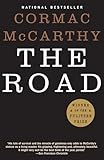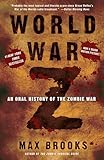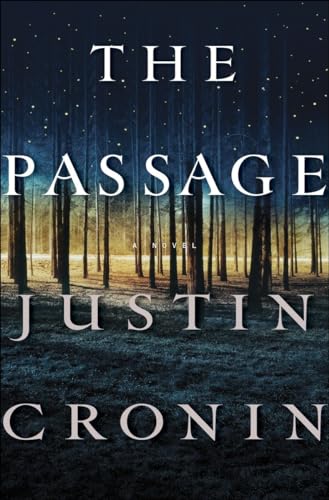 It’s summer in the northern hemisphere, and The Passage is everywhere. As I waited for my flight at LaGuardia Airport a month ago, headed north for a book tour, Justin Cronin talked about his book on Good Morning America on a screen above my head. The Passage waits for me, in stacks, at all the bookstores that I visit. Cronin’s readings draw enviably enormous crowds. The sheer scale of the marketing campaign inspires shock and awe: there is a Passage iPhone application, of all things, and not one but two wildly-expensive-looking websites.
It’s summer in the northern hemisphere, and The Passage is everywhere. As I waited for my flight at LaGuardia Airport a month ago, headed north for a book tour, Justin Cronin talked about his book on Good Morning America on a screen above my head. The Passage waits for me, in stacks, at all the bookstores that I visit. Cronin’s readings draw enviably enormous crowds. The sheer scale of the marketing campaign inspires shock and awe: there is a Passage iPhone application, of all things, and not one but two wildly-expensive-looking websites.
All of this delights me — I haven’t read the book yet, but a majority of booksellers of my acquaintance seem to have loved it, and I like seeing good books and their authors celebrated. The Passage, in my understanding, concerns a post-apocalyptic world. A virus has turned most of the population into vampires; the few human survivors are hunted in a dark and hopeless landscape. In other words, this sounds like exactly the kind of thing I’ll enjoy reading.
I’ve long had an unhealthy interest in apocalypse. I seem not to be alone in this morbid fascination; every year new wastelands arise on screen and in fiction, bleak and ruined worlds with their own sets of rules, their own catastrophes and their own unique monsters. Perhaps there’s something about experiencing the end of everything that helps us confront our own mortality. Perhaps it’s a way of dealing with the unsettling truth that the end, all conspiracy theories and misinterpreted Mayan calendars aside, will eventually be nigh: even if we manage to escape nuclear annihilation or a pandemic, we orbit a star and stars have lifespans.
And on that bright note I present, for your consideration and summer reading enjoyment, a brief selection of my favorite fictional apocalypses.
 1. The Gone-Away World by Nick Harkaway
1. The Gone-Away World by Nick Harkaway
This is one of my favorite books, and it concerns a disaster like none other in literature. “I am in hell,” the narrator of The Gone-Away World tells us. “I am in hell, and there are mimes.” The book is set in a world that has come apart at the seams. One or two of the best minds in science have devised a Go-Away bomb, the effects of which are difficult to describe in under two or three pages; the short version is that it makes things Go Away, in a capitalized, future-of-modern-warfare, vanished-from-the-face-of-the-earth-without-a-trace sense. But the fallout from the Go-Away bombs creates a vacuum in which the fears and dreams and nightmares of humans and animals are reified and come to life. This is a swashbuckling adventure story set in a dangerous and beautiful world, a surrealist post-war landscape where nightmares walk the earth. There are ninjas. Also, mimes.
 2. Things We Didn’t See Coming by Steve Amsterdam
2. Things We Didn’t See Coming by Steve Amsterdam
The nature of the apocalypse is vague. The first story — this is a collection of interlinked short stories, reviewed elsewhere on The Millions — concerns a young boy on the night of Y2K, and the stories that comprise the rest of the collection afford us glimpses of his life in the changed world that follows. Is this an alternate reality wherein the projected disasters of Y2K came to pass? Perhaps. Cause and effect remain elusive, but the grid has gone down. Later there are plagues and torrential rainstorms, pervasive cancers and volcanoes, draconian bureaucracies and flocks of refugees. Everything, it seems, has gone wrong all at once.
 3. The Road by Cormac McCarthy
3. The Road by Cormac McCarthy
I loved The Road. I also loved Jacob Lambert’s hilarious send-up of it, but I loved The Road more. It seemed fashionable a few months ago to not love The Road, but what the hell, I thought it was good. A man and his child move through a world decimated ten years earlier by an unspecified catastrophe. It’s the bleakest apocalypse I’ve come across in literature. Most apocalypse narratives, I’ve noticed, make it easy to imagine surviving the disaster; you imagine you’d probably be among the luckier refugees in Things We Didn’t See Coming, among the survivors of the Go-Away War; but McCarthy presents a world that seems not just unsurvivable, but like a place you might not actually want to survive.
 4. A Canticle for Leibowitz by Walter M. Miller, Jr.
4. A Canticle for Leibowitz by Walter M. Miller, Jr.
I came across this book nearly a decade ago, and was surprised to realize just now that I no longer own a copy. It’s a strange and entrancing story, the only novel that Miller published in his lifetime. The book begins in the dark ages of the 26th century, six hundred years after a global nuclear war has destroyed civilization. Illiteracy is nearly universal, but a small order of monks in Utah is dedicated to the preservation of half-understood books hoarded by their founder in the 20th century. The novel spans over a thousand years and reads as a parable of human folly: in 3174 a new Renaissance is underway, and electricity has been re-discovered; in 3781 there are once again nuclear weapons, and rumors of war.
 5. World War Z by Max Brooks
5. World War Z by Max Brooks
I’m generally not a fan of zombie fiction, but I picked this up in McNally Jackson in New York one day when I had some time to kill before a downtown appointment. Nearly a hundred pages later I was still reading on a bookstore chair. World War Z is presented as an oral history of the zombie war. An unnamed interviewer travels the world, interviewing survivors of the apocalypse: a pilot who went down over a heavily infested area of the United States while transporting supplies between safe zones, a member of a Chinese submarine crew who watched the end of the world through a periscope, a warrior monk from the evacuated islands of Japan. It’s scarily captivating.








